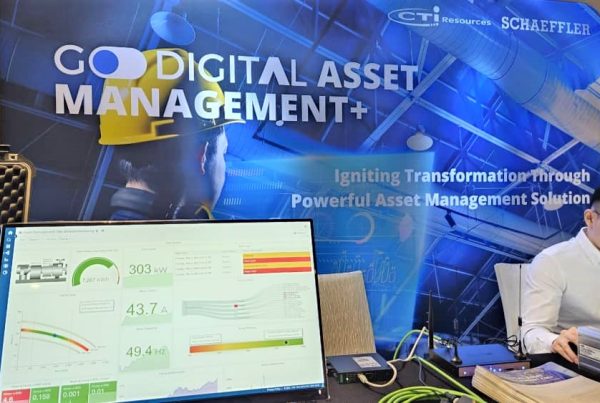
Like any other sector undergoing digital transformation, the transportation sector is entering an era where interconnected systems promise to bring greater safety, convenience, and utility to millions of users. While some subsectors, especially aviation, have faced unprecedented disruption, the sector overall is contending with many of the same challenges as other rapidly changing industries. These industries share a commonality — the criticality of resilience in digital systems.
A train signaling fault in a busy city such as Singapore or Hong Kong, for example, can result in thousands of commuters being delayed on their journeys to work or home. In air travel, the safety of an aircraft taking off and landing depends on the continuous operation of the automatic dependent surveillance-broadcast (ADS-B) system. A server that is tasked with running this critical infrastructure simply cannot fail.
Resilience Is Critical
More connected systems, with Industrial Internet of Things (IIoT) devices and smart sensors distributed across a network, are essential to tomorrow’s transportation systems. From a road toll collection system that enables drivers to pay fees in a contactless manner to a seaport that is upgrading its network infrastructure to support autonomous cranes and vehicles, digitalization is becoming the clear way forward.
However, not all systems are made for the high level of resilience that a transportation system requires. An IIoT gateway at a seaport has to be robust, in the same way a server handling the flood of data from a rail system has to keep running even if a component fault occurs. Not all systems are made for this.
For starters, the system has to be robust enough to operate in an industrial environment, secure enough to ward off cyber threats, and easy enough to set up and maintain with limited or no full-time IT staff.
In other words, a system has to be:
- Autonomous, so it is self-healing and remotely managed,
- Simple, so it is easy to manage and have data restored, and
- Protected, in terms of seamless failover, fault tolerance, and cybersecurity.
As a leader in providing reliable digital solutions for businesses across various verticals, Stratus has worked with partners to deploy the most important digital building blocks that support the transformation of the transportation sector. Stratus’ Edge Computing solutions like the Stratus® ztC™ Edge system enable transportation companies to deploy computing power for business-critical assets and processes at the edge. This could be for data analytics or access control systems.
For fault tolerance, the Stratus ftServer® system delivers 24 x 7 x 365 availability for transportation applications. The servers can tolerate component failures, plus ride through transient errors and power spikes to prevent downtime. Data corruption and loss are avoided.
This is possible with ftServer® systems offering better than 99.999% availability. This helps eliminate unplanned downtime and data loss, and ensures all transactions are processed and applications are available.
To be sure, resilience is not just about hardware. Stratus everRun® software offers continuous application availability, which enables transportation operators to protect virtualized workloads and data and customize the level of availability they require.
These are just some of the foundational components that Stratus delivers for transportation sector organizations, which they can use to build mission-critical solutions. More than just a hardware provider, Stratus also delivers software components and services that industry partners use to deliver solutions that make a real difference in the lives of everyday people.
Success Stories in Major Cities
In a subway setting, a resilient system is needed to manage and control the train signals, platform screen doors, and other applications at a station. A fault-tolerant system brings improved safety and a better customer experience to stations undergoing a digital transformation.
In Melbourne, the metro network deployed the Stratus ftServer® system to run Siemens Mobility Solutions software to track train movement, augment signaling, and authenticate trains. Voice applications also run on the systems.
In the Tuas mega port in Singapore, Stratus ftServer systems are connected to both a control center and the automated cranes and automated guided vehicles deployed on site. The systems provide always-on intelligent control over the semi-autonomous fleet.
Separately, at the Hongqiao International Airport in China, Stratus ftServer systems have proved to be reliable for mission-critical applications such as the ADS-B system that transmits wireless signals to planes. The airport, which serves more than 45 million passengers annually, uses ftServer systems to provide a stable ADS-B platform for integrated data compilation, analytics, and wireless signal data transmission.
It eliminated single points of failure, ensuring continuous ADS-B operation, which is critical to enable planes to land and take off safely at the airport. The result: Safer flights in and out of the airport in Shanghai, China’s financial center.
Change Starts Today
As they transform rapidly, the transportation systems of tomorrow will become more reliant on digital control and management systems and Edge Computing solutions. This means transportation professionals from the subway to the sea to the sky need to deliver higher levels of safety and convenience starting today.
If data is the all-important fuel to keep tomorrow’s digitally equipped transportation systems running, then it must continuously provide insights and enable the necessary operational processes without disruption.
Source: Stratus








